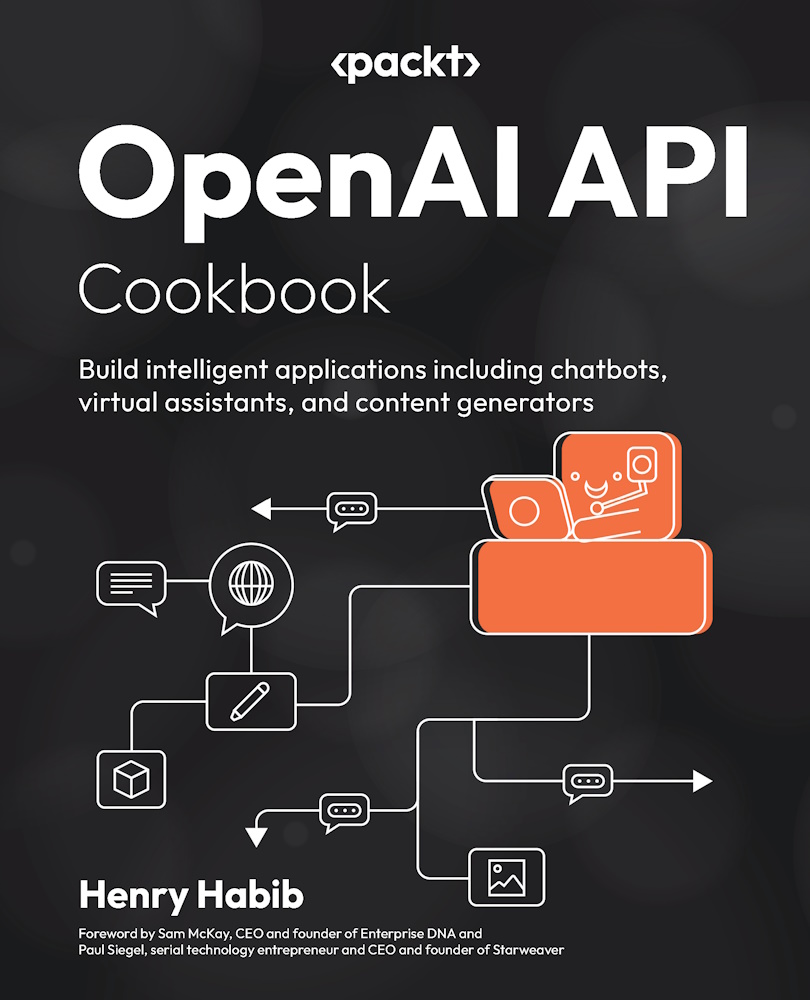

Most ebook files are in PDF format, so you can easily read them using various software such as Foxit Reader or directly on the Google Chrome browser.
Some ebook files are released by publishers in other formats such as .awz, .mobi, .epub, .fb2, etc. You may need to install specific software to read these formats on mobile/PC, such as Calibre.
Please read the tutorial at this link: https://ebookbell.com/faq
We offer FREE conversion to the popular formats you request; however, this may take some time. Therefore, right after payment, please email us, and we will try to provide the service as quickly as possible.
For some exceptional file formats or broken links (if any), please refrain from opening any disputes. Instead, email us first, and we will try to assist within a maximum of 6 hours.
EbookBell Team

4.1
90 reviewsKey Features
Understand the different elements, endpoints, and parameters of the OpenAI API
Build tailored intelligent applications and workflows with the OpenAI API
Create versatile assistants with for a multitude of tasks
Purchase of the print or Kindle book includes a free PDF eBook
Book Description
As artificial intelligence continues to reshape industries with OpenAI at the forefront of AI research, knowing how to create innovative applications such as chatbots, virtual assistants, content generators, and productivity enhancers is a game-changer. This book takes a practical, recipe-based approach to unlocking the power of OpenAI API to build high-performance intelligent applications in diverse industries and seamlessly integrate ChatGPT in your workflows to increase productivity. You'll begin with the OpenAI API fundamentals, covering setup, authentication, and key parameters, and quickly progress to the different elements of the OpenAI API. Once you've learned how to use it effectively and tweak parameters for better results, you'll follow advanced recipes for enhancing user experience and refining outputs. The book guides your transition from development to live application deployment, setting up the API for public use and application backend. Further, you'll discover step-by-step recipes for building knowledge-based assistants and multi-model applications tailored to your specific needs. By the end of this book, you'll have worked through recipes involving various OpenAI API endpoints and built a variety of intelligent applications, ready to apply this experience to building AI-powered solutions of your own.